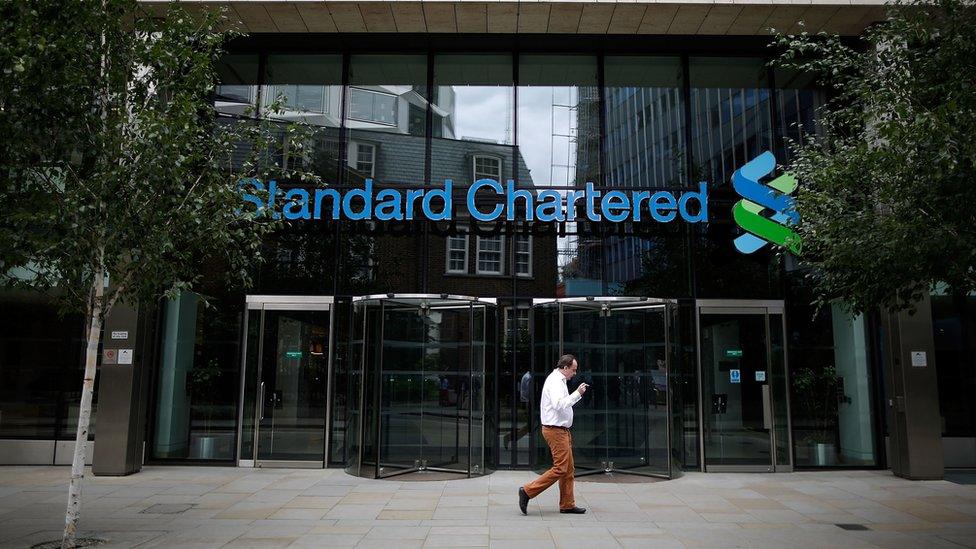Standard Chartered chief warning over Brexit staff moves
- Published

A Standard Chartered bank executive says tough demands by EU regulators could mean more jobs being moved from the UK overseas than currently thought.
Europe and Americas boss Tracy Clarke says the relatively small size of the bank in the EU market means it would not "be moving hundreds of people".
But she says the impact on banks with large EU services may be "significant".
Standard Chartered is to spend about £15m turning its Frankfurt office into a European base due to Brexit.
The bank plans to create a subsidiary at its German branch in order to maintain access to the European market after the UK withdraws from the European Union.
'Empty shells'
It has been waiting nearly nine months for EU officials to approve the relevant banking licence, which it originally expected to receive by the spring.
Ms Clarke told the Press Association: "Because we were one of the first [to apply for a licence] there was no precedent for us, or for them. It's been a learning process on both sides."
The European Central Bank has said it will not tolerate so-called brass plate operations - that is where companies have a presence in a host country in name only.
Mr Clarke says it means banks such as the UK-headquartered Standard Chartered may end up moving more jobs due to Brexit than originally planned, in order to meet European banking compliance rules.
"For us, it still won't be hundreds more people because of the size and scale of our business, so you might be talking a few more for us.
"But if they're taking this approach with all other banks who are much bigger than we are in terms of their European business, that could be more significant," she warned.
The ECB would not comment on Standard Chartered but said it is "keen to prevent banks from creating empty shells when granting licences to international banks setting up new subsidiaries in the euro area in the context of Brexit".
It added there were a number of criteria to be considered when assessing licence applications, including that subsidiaries have adequate local management capabilities, and can provide accurate data on their local activities.
- Published26 February 2018

- Published28 November 2017

- Published4 August 2017
